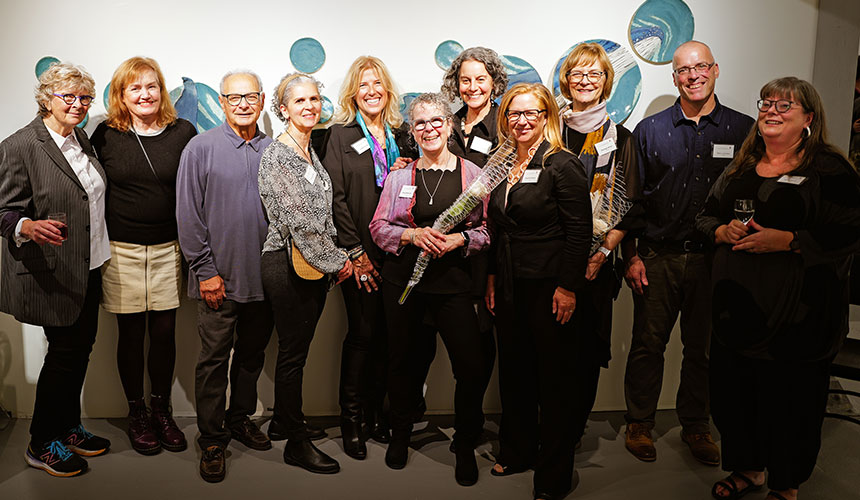By Angelo diPetta –
In late 2021, while discussing the idea of a model and mould-making workshop for the Kingston Potters’ Guild with Anna Elmberg-Wright, the subject of a mentorship came up. I had just completed a Creative Directions Mentorship for FUSION.
I presented Anna, who was the program chair for the KPG, with a brief outline of how the mentorship would work.We agreed that it would be a very inspiring and creative experience for the guild members. Anna liked the idea that it would challenge the participants conceptually, creatively and technically. Also, she liked the fact that a mentorship would enhance the programming aspect of the guild.
For the selection process, I asked that each applicant submit ten images of their work and a statement essentially addressing why a mentorship would be useful and relevant at this point in their career. I purposely didn’t ask them what they wanted to do during the mentorship as I wanted this to evolve.On a technical skill level, I wanted them to be at a fairly even level.
I wanted to be confident that they could pull off the ideas that would emerge as the mentorship progressed. After the introductory meeting, I asked the group to delve into deeply personal, meaningful and important moments. Through a series of prompts including concept and image boards, personal experiences and drawings, ideas began to emerge.
As the meetings progressed, those initial ideas began to take shape and form. At the outset, I had stated to the group that there would be ups and downs for them through the course of the program which did happen.
Despite this, technical and conceptual challenges were accepted and resolved.Working methods were adjusted to accommodate these newly evolving forms. When confronted with these challenges, I often suggested that they not think like a potter, but rather as an artist or designer.
This approach is useful because it takes one out of their comfort zone and forces them to think differently about possible solutions. One of the key aspects of these mentorships is the discussions that the participants engage in. And on this, there was lots of positive and honest feedback and guidance that everyone appreciated. I encouraged the group to think beyond the usual size of the ceramic objects that they made. Scale was important. This mentorship provided a unique opportunity to enlarge not only the ideas but also the physical size of the work.
The final installation of the finished pieces is a testament to the hard work and determination of the participants. I was especially impressed and proud of the diversity and scope of the ideas that were pursued. I have done several guild-based mentorships over the last 10 years. I would encourage all potters guilds to organize a mentorship for their members. It is a challenging yet rewarding experience.

